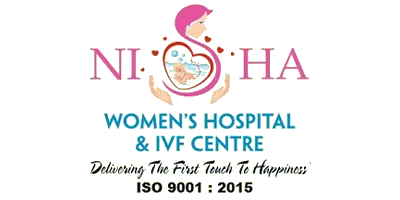Polycystic Ovarian Disease (PCOD), also known as Polycystic Ovarian Syndrome (PCOS), is a common condition that affects 5% to 10% of women between the ages of 12 and 45. It is a hormonal imbalance caused by a woman’s hormonal imbalance. It could make it difficult for women to get pregnant and interrupt their monthly cycles. PCOD problem include irregular periods, acne, and hirsutism. Untreated, it can lead to insulin-resistant diabetes, obesity, and high cholesterol, increasing heart disease risk. Explore PCOD Issues and solutions for management.
As polycystic ovarian diseases can be very difficult to cure, you should consult the experts. You can visit one of the most renowned gynecologists in Bopal with the best expertise for years.
What causes polycystic ovarian disease (PCOD)?
PCOD’s etiology is yet unclear. However, there is evidence of a link between PCOD and moderate inflammation, high levels of male hormone production (hyperandrogenism), and heredity. PCOD is caused by several causes, including early menstruation, an unhealthy lifestyle, and pollution.
Let’s now discuss all the PCOD Issues and Solutions
Symptoms of PCOD
- Keep an eye out for the following Polycystic Ovarian Disorder symptoms:
- Periods that come every 2 to 3 months are irregular (amenorrhea)
- Heavily bled (Menorrhagia)
- Hair growth on the body and face that is unusual (hirsutism)
- Acne that won’t go away despite standard treatments. This is caused to an excess of testosterone in the peripheral nervous system.
- Uncontrolled weight gain, particularly around the waist
- Darkening or pigmentation of the skin around the neck (Acanthosis nigricans)
- Infertility
- Male-pattern baldness is a kind of baldness that affects men.
- Headaches
You can be one or more of these symptoms may be present.
Even if a person is slim and has clean skin, they might still have PCOD. This is because it is an endocrine disease that affects multiple body systems. Insulin Resistance and hyperinsulinemia, on the other hand, are the disease’s primary pathologies. Insulin is a hormone that controls blood sugar levels in the body. Insulin resistance is defined as a cell’s failure to respond to insulin’s activity in transferring glucose (sugar) from the circulation into muscle and other tissues. As a result, the pancreas generates extra insulin to counteract the elevated sugar levels.
Complications
PCOD that isn’t under control can cause a slew of issues, including infertility and an increased risk of type 2 diabetes. Patients with PCOS who become pregnant are more likely to experience perinatal problems including gestational diabetes and pre-eclampsia. They also have a higher long-term risk of endometrial cancer. Increased cholesterol levels, high blood pressure, and possibly breast cancer are some of the other risks.
Treatment of PCOD
The cure for PCOD has yet to be discovered. The illness can be managed by altering one’s lifestyle. A multidisciplinary strategy involving a nutritionist, gynecologist, endocrinologist, dermatologist, and infertility expert is required.
The greatest approach to control and manage PCOD is to maintain a healthy weight. Even a 5% weight loss can make a significant difference in the treatment of the condition. As a result, PCOD sufferers must exercise regularly and eat a balanced diet. Sugars and carbs should be limited in the diet. Patients with PCOD should consume a lot of protein and eat a lot of fiber.
The remainder of the treatment will be determined by the symptoms. The various modalities are as follows:
- Acne, pigmentation, and hair growth can all be treated with skin treatments.
- Patients who are unable to conceive are given fertility medications.
- PCOS is generally treated aggressively in people trying to get pregnant. Hormones and metformin are used to treat teens with irregular periods and insulin resistance.
- In some cases, second-line treatment may be required, such as aromatase inhibitors, laparoscopic surgery, or ovarian perforation.
- Oral injections and medications are available to induce ovulation and break down oocytes to improve fertility.
- Insulin resistance can be treated with medications, and hormones can be balanced to correct menstrual cycles.
It must be remembered that no drug or treatment will be effective until lifestyle changes are made.
Frequently Asked Questions:
What PCOS-related questions should I ask?
Inquire of the Doctor: 10 PCOS-Related Questions
Q: What exactly is PCOS?
Q: What are the signs and symptoms of PCOS?
Q: What effect does PCOS have on fertility?
Q: How do you know if you have PCOS?
Q: Are some ethnic groups more prone to PCOS than others?
Q: Should I see a fertility doctor before trying to conceive if I have PCOS?
Q: What can I do on my own to alleviate the symptoms of PCOS?

